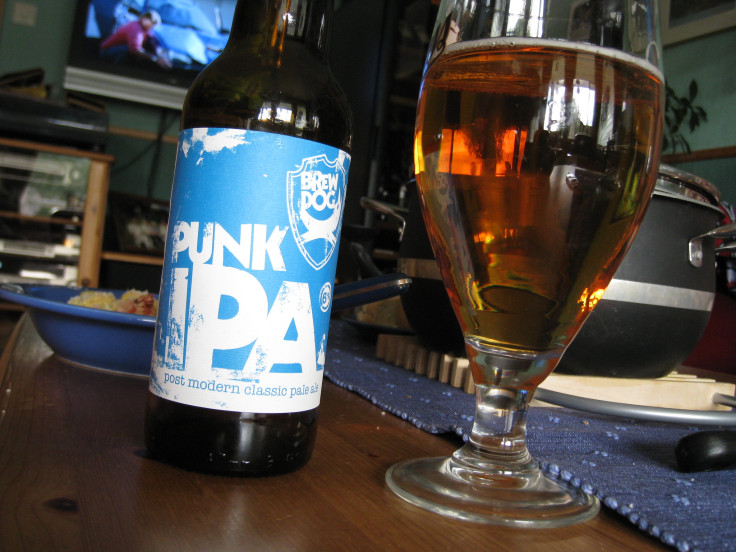Why BrewDog Beer Was Dropped from 2,000 Pubs – A Look at the Brewery's Troubled History
BrewDog's flagship Punk IPA has been pulled from nearly 2,000 pubs as the brewer battles shrinking sales, past controversies and fierce competition.

British craft brewer BrewDog is facing another major setback as reports reveal its flagship beer Punk IPA has been pulled from nearly 2,000 pubs across the UK. The news adds to a turbulent period for the company, marked by financial pressures and allegations of a 'toxic' workplace culture.
Losing Pub Status?
According to The Telegraph, BrewDog has been 'losing taps in the pub and bar sector at an extraordinary rate', with venues replacing its beers with rivals such as Camden Town and Beavertown.
The steepest losses are coming from large pub chains, many of which have dropped BrewDog entirely, cutting off a vital revenue stream just as the brewer is attempting to rebuild momentum.
Confidential trade figures show that over the past two years BrewDog's draught portfolio has disappeared from about 1,860 pubs, slashing its UK presence by more than one-third.
The most damaging blow has been to Punk IPA, which has been pulled from 1,980 pubs in the same period. That represents a 52.3% drop in distribution, reflecting shrinking tap selections and a decline in consumer demand for the once-iconic craft beer.
A Tale of Financial Wins and Loss
Despite setbacks, BrewDog did post a financial recovery in 2024, recording an adjusted EBITDA of £7.5 million and restoring profitability for the first time since 2021. The brewer reported gross revenues of £357 million and net revenues of £280 million, although overall revenue was largely flat compared with the previous year.
The bounce-back followed a bruising 2023, when BrewDog reported a £60 million operating loss, further weighed down by a £14 million impairment charge.
In an interview with The Grocer, BrewDog CEO James Taylor said: '2024 was a transformative year for BrewDog, and I am pleased to report the company has returned to profitability for the first time in several years.'
He added: 'After a challenging 2023, we streamlined operations and improved our efficiency across our global footprint, which had a tangible impact on our bottom line.'
Its US business, however, continued to lag. The American arm posted a pre-tax loss of £6.7 million, offset only slightly by a modest operating profit of £376,000 and small revenue gains. The results prompted a retrenchment strategy known internally as 'Operation Slingshot'.
Recorded History of Workplace Fiascos
BrewDog's reputation also remains clouded by past scandals. In 2021, more than 100 former employees signed an open letter accusing the firm of fostering a 'culture of fear' and building a workplace defined by a 'cult of personality' around its founders.
The letter claimed staff suffered burnout, mental illness and were too afraid to speak up. BrewDog responded by commissioning an independent review, apologising publicly, and introducing reforms including a workplace code, expanded HR support, mental health initiatives and anonymous reporting tools.
Although management insists that most current employees now view the company positively, critics argue the brand's aggressive expansion strategy came at the cost of staff wellbeing.
How Does BrewDog Stand Out in the Market?
The UK beer market remains dominated by brewing giants, with Anheuser-Busch InBev controlling 21.2% of the market, Heineken 19.7%, and Molson Coors 17.2%.
By comparison, craft beer accounts for only about 2% of total UK sales. Within that niche, however, BrewDog has carved out a high-profile role, ranking as the seventh-largest beer brand in Britain.
Its Black Heart stout, launched in March 2023, has been one of its few recent bright spots. The drink captured 12.6% of Guinness's pub and bar sales and secured 20% and 35% of stout sales in Tesco and Morrisons, respectively.
Can BrewDog Rebuild Its Brand?
BrewDog has fought its way back to profitability and still holds a strong, if pressured, position in the UK market. But shrinking tap presence, lingering workplace controversies and fierce competition from multinational giants underline how fragile its momentum remains.
The company now faces a crucial challenge: to prove it can balance growth with stability, rebuild trust among both employees and customers, and reclaim its place as a long-term force in Britain's beer landscape.
© Copyright IBTimes 2025. All rights reserved.




















